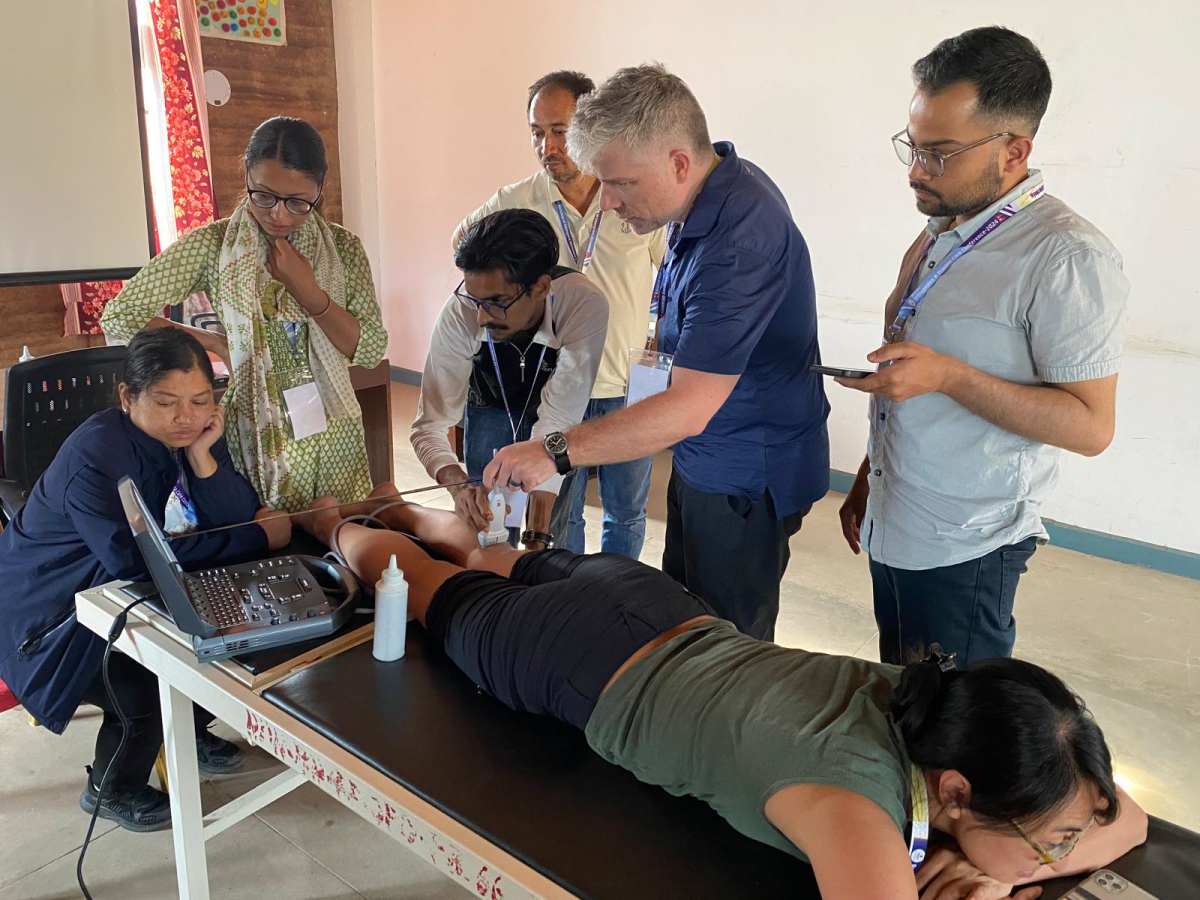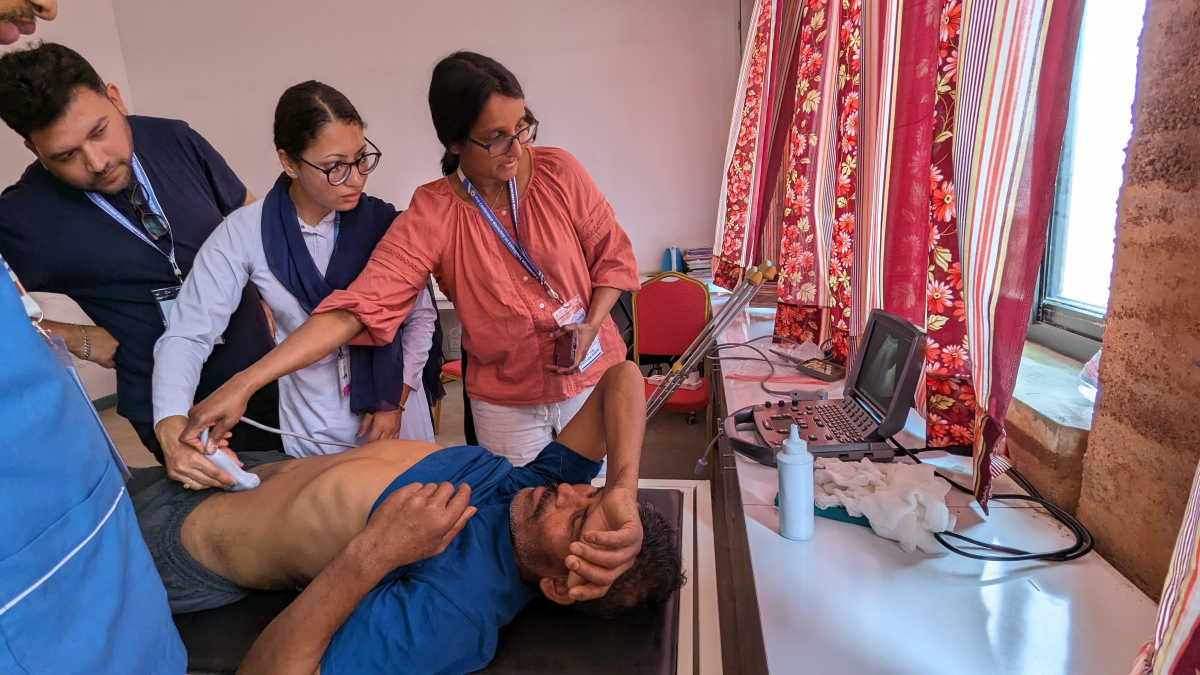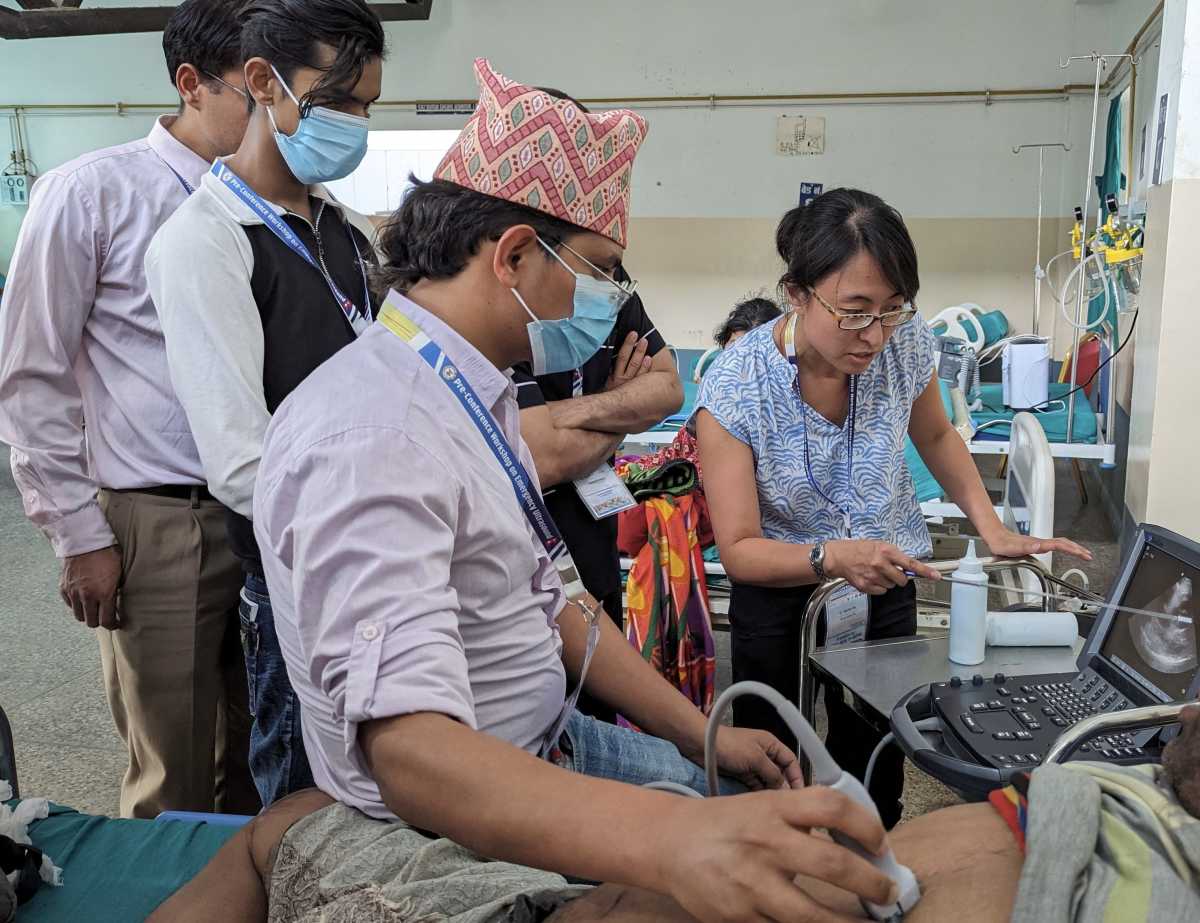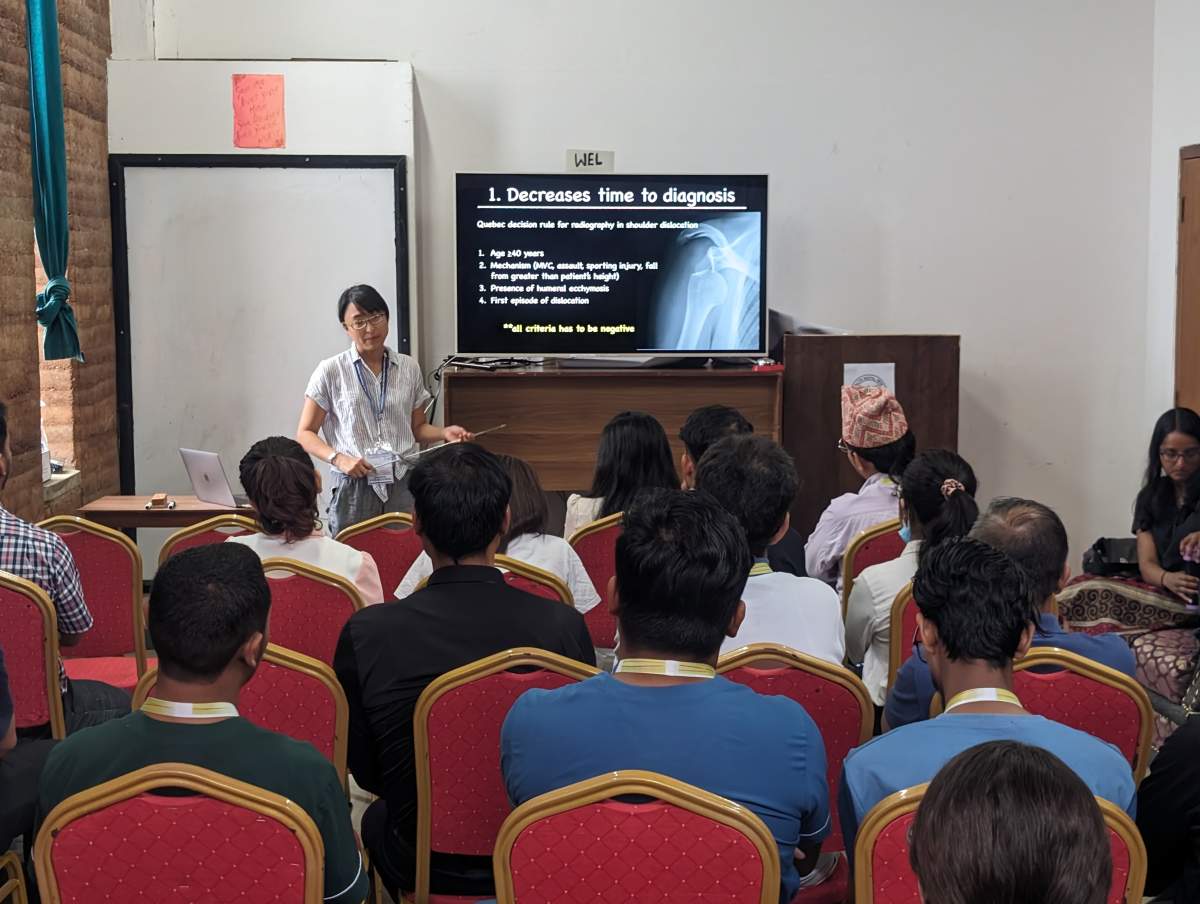Particularly in low-resource settings, point-of-care ultrasound (POCUS) has demonstrated great utility in identifying life-threatening injuries, managing pain through ultrasound-guided nerve blocks and identifying orthopedic injuries when plain film imaging is not available.
Our project aims to train a group of local health care providers in the use of POCUS in trauma, with an end goal of establishing local ultrasound experts that can then train health care workers in their community on the use of this rapidly developing technology. Since POCUS is becoming increasingly portable, it can also be used by community health workers as a diagnostic tool when travel to a local hospital is not possible.
Our project will start with self-guided pre-learning on various trauma-related POCUS topics, followed by a two-day in person workshop covering trauma-related POCUS modalities. We also aim to establish a system of ongoing mentorship for our trainees so that we may provide virtual image review and quality assessments of images obtained after the project is completed locally.
Our workshop will take place at Bayalpata hospital, a recently built facility dedicated to providing free, high-quality health care for its patients. Located in Achham, one of the poorest and most remote mountainous regions of Western Nepal, Bayalpata hospital serves over 100,000 patients per year and has a catchment area of about 1,000,000 people. Owing to its mountainous location, trauma from falls is a significant health concern for this population. Access to health care is difficult in this area since it serves such a wide catchment area and the roads serving the community are few and far between. Many patients walk 8-10 hours for access to care at Bayalpata hospital. The hospital also oversees a network of approximately 50 community health workers that deliver direct care to the communities. It is our hope that training a group of health care workers that serve these remote communities will increase their diagnostic capabilities when access to other methods of imaging, such as plain x-ray or computed tomography scans, is limited or impossible.
Our goal is to improve the care of injured patients by decreasing diagnostic delays and treatment initiation through timely and appropriate use of POCUS. We intend to perform a study to demonstrate change in clinical behaviors of the providers and publish our experience so that other remote communities may benefit from our curriculum.
Establishing ongoing mentorship of our trainees is an important component to the success of this project: Learning POCUS takes both time and ongoing image review for quality assurance. We plan to engage the global expert POCUS community as needed to help with image review and mentorship needs.








Bayalpata hospital is nestled in the mountainous Western region of Nepal. Getting there from Kathmandu needs a plane ride, followed by a 10 hour road trip through the mountains. The drive to the hospital is treacherous, especially during the rainy season - it serves as a reminder of why access to health care is difficult. Getting medical supplies and services to these remotest regions is difficult. The purpose of our mission at Bayalpata hospital was to teach the use of point-of-care ultrasound (POCUS) in the trauma setting. As there are no other forms of advanced imaging at this hospital, POCUS can be a tremendous tool in experienced hands.
We ran a two-day workshop for health care workers serving some of the remote communities in Nepal. Our goal was to provide hands on training covering the focused assessment with sonography in trauma (EFAST), musculoskeletal and soft tissue ultrasound, and nerve blocks.
It was a real pleasure to teach such an engaged group of health care workers, some of which traveled the same roads as we did to attend. The workshop was well received by attendees, many of whom who were able to demonstrate their skills at the end of the workshop.
Our next goal is to identify a small number of POCUS champions from within the community Bayalpata hospital serves, and provide them with advanced training, so that these champions can continue to train incoming health care workers in the ideal use of the POCUS for such a remote setting.